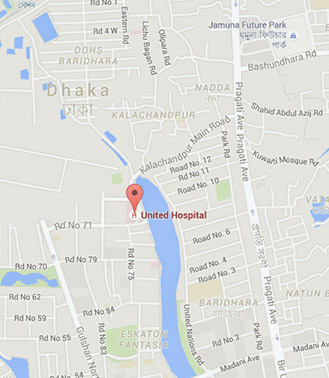Neonatal Intensive Care Unit (NICU), where big journeys of newborns begin with small steps

The birth of a baby is a wonderful and very complex process. Many physical and emotional changes occur for both mother and baby. A baby must make many physical adjustments to life outside the mother's body. Leaving the uterus means that a baby can no longer depend on the mother's blood supply and placenta for important body functions. Before birth, the baby depends on functions from the mother which include breathing, eating, elimination of waste, and immunity.
The newborn's body must work together in a new way. In some cases, a baby has trouble making the transition outside the womb. Preterm birth, a difficult birth, or birth defects can make these changes more challenging.
Dr Nargis Ara Begum, Senior Consultant Neonatologist at United Hospital, says the infant death rate for Bangladesh in 2020 is 24.730 deaths per 1000 live births, a 4.1% decline from 2019, with similar year to year decline percentage in previous years, because the level of medical care and screening of pregnant mothers and newborns are now advanced, including those done by neonatal intensive care units.
Newborn babies who need intensive medical care are often put in a special area of the hospital called the neonatal intensive care unit (NICU). The NICU has advanced technology and trained healthcare professionals to give special care for these tiniest patients. NICUs may also care for babies who are not as sick but do need specialised nursing care. Some hospitals don't have the staff for a NICU and babies must be moved to another hospital. Babies who need intensive care do better if they are born in a hospital with a NICU than if they are moved after birth. Generally, babies born earlier and smaller or with health conditions such as troubled breathing, heart problems, infections, or birth defects are cared for in the NICU. Most babies admitted to the NICU are preterm (born before 37 weeks of pregnancy), have low birth weight (less than 5.5 pounds or 2.5 kg), or have a health condition that needs special care.
Dr Nargis Ara also says that the increase in complications in mothers like gestational diabetes which has led to a spike in larger (or macrosomic) babies at birth, can lead newborns to be taken to the NICU for observation for a couple of days because it can affect their breathing and glucose levels. Even in mothers not having any complications, she said, babies with rapid or slow breathing, erratic heart rates or abnormal bloodwork of any kind could also be admitted to the NICU until their vitals are normal and stabilized again. For example, sometimes a woman might develop an infection or fever during labor, which her baby can contract and will need to be observed by the intensive care doctors and nurses, according to Dr Nargis.
With the higher level of C-sections now, sometimes these babies also need a little extra observation, says Dr Nargis, and each baby must be assessed to see if he or she needs the NICU.
High-risk factors of the mothers include being younger than age 16 or older than age 35, diabetes, high blood pressure, bleeding, multiple pregnancy (twins, triplets, or more), too little or too much amniotic fluid, premature rupture of membranes (also called the amniotic sac or bag of waters) and others like drug or alcohol use. Other than Forceps or Cesarean Section delivery, delivery factors also include fetal distress or birth asphyxia due to lack of oxygen as in umbilical cord wrapped around the baby's neck or breech birth (buttocks delivered first) or other abnormal position, baby's first stool (meconium) passed during pregnancy into the amniotic fluid etc.
My son was born full-term but he had jaundice. I was devastated when doctor told me he needs to be admitted in NICU for phototherapy. I heard from a friend of mine before that babies are pricked every day to check status of jaundice in their blood; I shuddered just at the thought of it. To my utmost relief, at United Hospital NICU, my son's blood bilirubin status was checked by their no-prick-skin-touch bilirubinometer, which I don't think even many other big hospitals of the country have in their service, says Ms Farzana Huq, an IT professional, sharing her experience about United Hospital NICU.
At United Hospital specially-trained healthcare providers who care for the babies in NICU include Neonatologist who is a pediatrician with extra professional training and degree in the care of sick and premature babies, who further supervises other neonatology & pediatric fellows and residents, nurse practitioners, and nurses in NICU.
Dr Mohammad Abdur Rahman, Junior Consultant Neonatologist at United Hospital says, when a preterm baby winds up in the NICU or when the little one is born full-term and at a normal weight but still winds up in intensive care for a little while, in both the cases, we ask the parents to rest assured that it's because doctors want to do everything they can to make sure the baby thrives and gets a clean bill of health before taken home. United Hospital NICU team always assists to reassure parents that not before too long, their beautiful baby will be back in their arms ready to start life at home, with the family.




